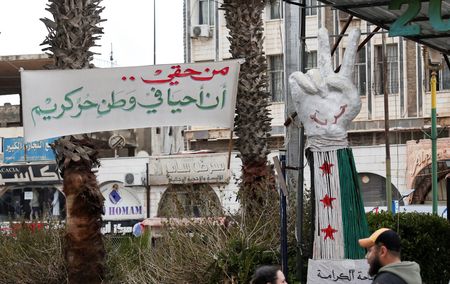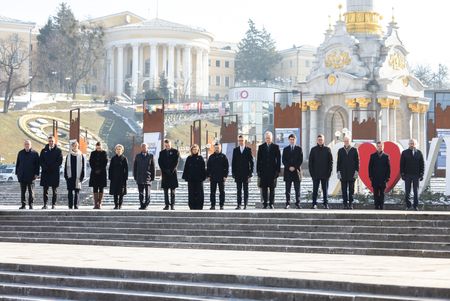JERUSALEM (Reuters) -Germany’s likely next chancellor Friedrich Merz said on Monday he had invited Israeli Prime Minister Benjamin Netanyahu to visit and would find a way for him to do so without being arrested under a warrant by the International Criminal Court.
“I think it is a completely absurd idea that an Israeli Prime Minister cannot visit the Federal Republic of Germany,” Merz said at a press conference a day after his conservatives won the largest share of the vote in a national election.
He said he had told Netanyahu by phone “that we would find ways and means for him to visit Germany and leave again without being arrested”.
Netanyahu’s office said Netanyahu had congratulated Merz, and that Merz had told Netanyahu he would invite him to Germany “in defiance of the scandalous International Criminal Court decision to label the Prime Minister a war criminal”.
The Hague-based ICC has issued arrest warrants for Netanyahu and his former defence minister as well as Hamas officials for alleged war crimes committed in Gaza.
All 27 EU countries including Germany are signatories of the founding treaty of the court, the only permanent international tribunal for war crimes and crimes against humanity, which requires members to arrest its suspects on their territory.
The court did not immediately respond to a request for comment. Israel rejects the jurisdiction of the court and denies war crimes.
Germans feel a special responsibility towards Israel due to the legacy of the Holocaust, and Merz has made clear he is a strong ally. But Germany also has a strong tradition of support for international justice for war crimes.
The Left party called Merz’s invitation a “disaster” and accused him of “double standards”.
Germany had always stressed that international arrest warrants would be executed, said co-leader Jan van Aken, referring to an ICC warrant for Russia’s President. “If Vladimir Putin comes to Germany, then this arrest warrant must be implemented. The same applies to Netanyahu.”
The war in Gaza started when Hamas-led militants launched a cross-border attack on Israeli communities, killing 1,200 people and capturing more than 250 hostages, according to Israel’s tallies.
The Israeli retaliatory offensive has killed at least 48,000 people, Gaza health authorities say, and reduced much of the enclave to rubble, leaving hundreds of thousands of people in makeshift shelters and dependent on aid.
(Reporting by James Mackenzie, Andreas Rinke; Additional reporting by Anthony Deutsch in Amsterdam; Writing by Madeline ChambersEditing by Kirsti Knolle, Miranda Murray, Peter Graff)









